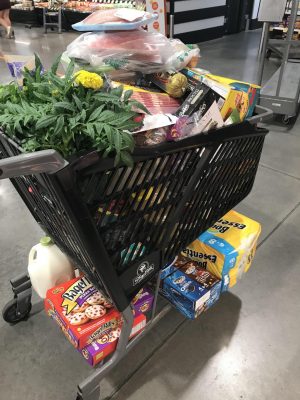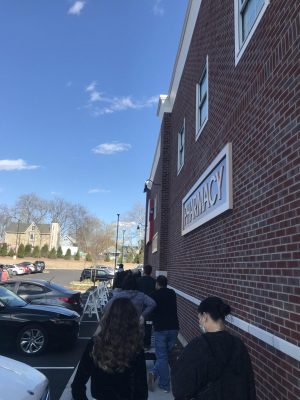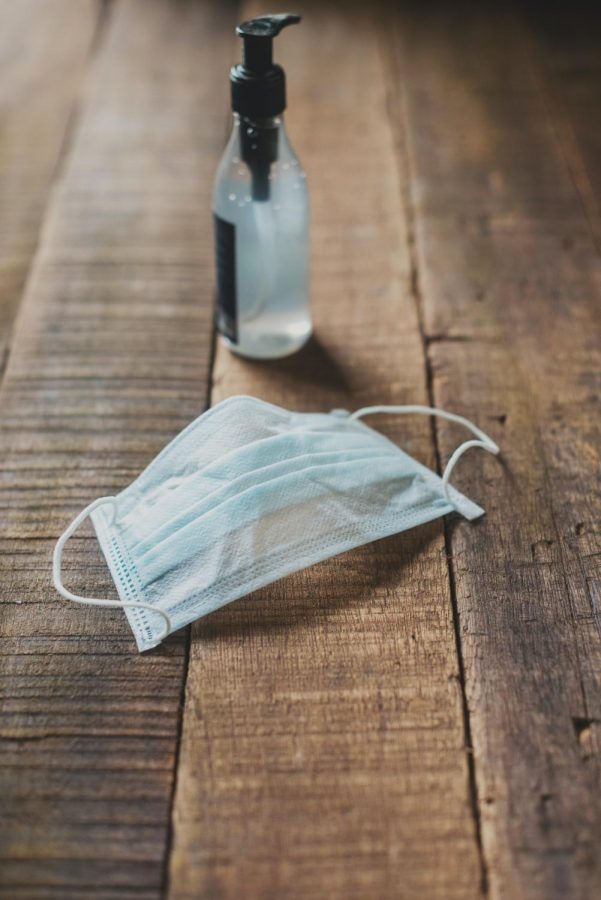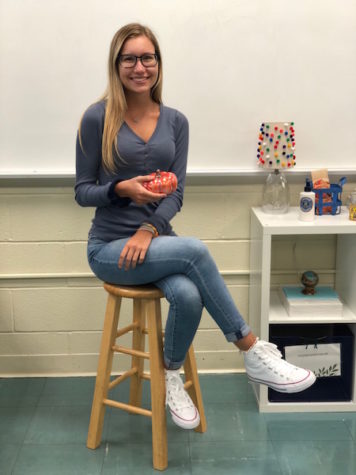Reopening The Country
States are reopening, but is it too soon?
Governors across the country are announcing and implementing re-opening procedures, but is it safe?
June 16, 2020
With states slowly lifting their lockdown restrictions, health professionals and government officials fear the negative effects of reopening too soon. Many want to begin reopening to stop any further damage to the economy caused by COVID-19. In an email to the New York Times on March 11th, Dr. Anthony Fauci, the director of the National Institute of Allergy and Infectious Diseases, said “If we skip over the checkpoints in the guidelines to: ‘Open America Again,’ then we risk the danger of multiple outbreaks throughout the country. This will not only result in needless suffering and death but would actually set us back on our quest to return to normal”. All 50 states have started re-opening procedures, with New York and New Jersey recently joining the list.
Barbers in Georgia are wearing masks and gloves and restaurants in Alabama are opening at 50% capacity. A major issue, among the states that are reopening, is that they have failed to reach the criteria set by the Trump Administration. A major guideline set by the administration is that a state needs to have a steady decline in cases for over a two-week period. Most states that have begun reopening have increased in cases since two weeks ago.

In Wisconsin, their Supreme Court overturned the state’s stay-at-home order and allowed businesses to reopen at a much smaller capacity. In Florida, with tourism down, Walt Disney World hopes to gain some traction after beginning their phased reopening of Disney Springs on May 20 and their parks in July, with new health and safety measures. As of now, a 14-day quarantine period is still in effect for anyone visiting Florida from New York or New Jersey, meaning if you are planning to visit Disney World, you will only be visiting your hotel room.
According to a study done by the Democracy Fund + UCLA Nationscape Project, 71% of Americans fear that the government is reopening states too quickly. Due to some states lifting more restrictions than others, it is causing a rise in out-of-state visitors. For example, Georgia was one of the first states to begin lifting restrictions and they have seen an increase in out-of-state visitors by 13%, University of Maryland researchers have found.
Many colleges like the California State University school system, which comprises 23 campuses, are going ahead of the curve and

deciding not to reopen in the fall and instead are continuing with online classes. Dr. Thomas R. Frieden, the former Director of the CDC during the Obama Administration, said, “We’re not reopening based on science…We’re reopening based on politics, ideology, and public pressure. And I think it’s going to end badly.”
Other colleges, however, are already planning to reopen in the fall with in-person classes. The Chronicle of Higher Education has been closely studying colleges and how they plan to reopen in the fall. They found that 64% of the more than 560 schools are planning on reopening in-person classes, while other schools are choosing to either have online-only, proposing a hybrid model, or waiting to make a decision. “I do wish schools would reopen by fall, but I guess we’ll just have to leave it to chance and see how the world is doing by then,” said senior and Salutatorian Cecilia Kang.
Eleanor Murray, Boston University’s School of Public Health assistant professor of epidemiology said, “If we open up, and do exactly what we were doing in March, we’re going to see a huge increase in cases, we’ll go back to that same exponential trajectory.” Columbia University has predicted that if more states begin to open up, the United States can face 10,000 or more new cases per day by June.
With Becton’s seniors going off to college, many wonder how COVID-19 will impact their fall semester and they fear uncertainty. The economy is in great danger, but politicians and scientists, alike, are trying to find solutions that help revive it while restoring the nation’s public health.




